Who prices social housing?
Submitting to the National Assembly (NA) the revised Housing Law project on the morning of June 5, Minister of Construction Nguyen Thanh Nghi said that regarding the beneficiaries of social housing support policies, the draft law stipulates 12 groups of subjects, including workers and laborers working at enterprises in industrial parks.
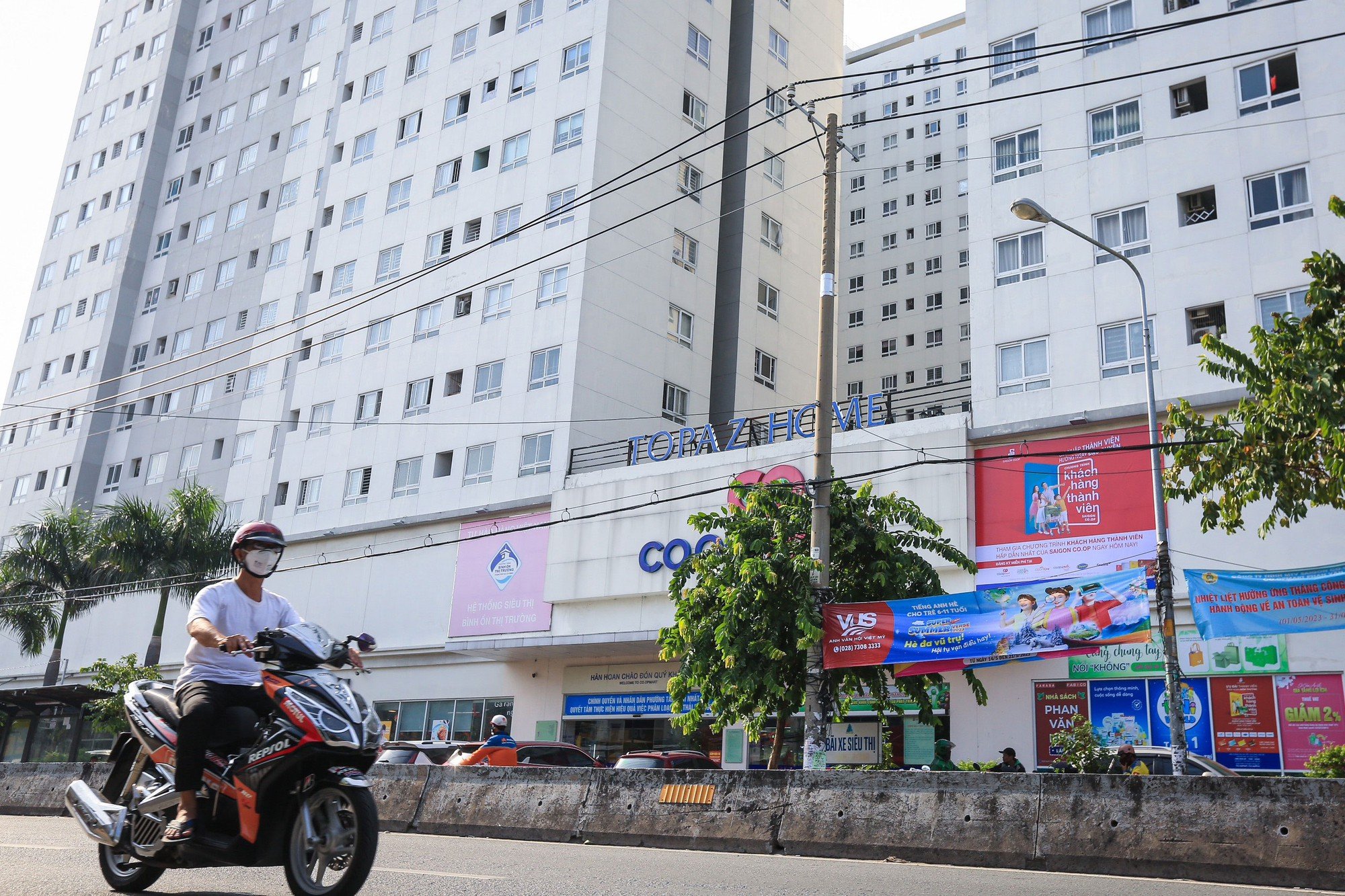
Many National Assembly delegates proposed expanding the beneficiaries of social housing policies, in accordance with current practices.
In the review report, Chairman of the National Assembly's Law Committee Hoang Thanh Tung said that some opinions suggested amending it to: "Workers and employees with income not subject to income tax according to the provisions of the law on personal income tax (PIT)" to ensure fairness for low-income workers in general, regardless of whether they work in or outside industrial zones.
However, this proposal was not agreed by the delegates. Discussing in the morning group the same day, Deputy Chairman of the National Assembly's Finance and Budget Committee Nguyen Huu Toan said that if the regulation is as stated above, it will eliminate a series of cases that also need to enjoy social housing policies. "With an income of more than 10 million VND/month, having paid personal income tax, but still having to worry about so many things, covering living expenses, and sending children to school, where will the money come from to buy a house? Those who contribute to society but are excluded need to be considered," Mr. Toan said, adding that if there is a regulation on personal income tax, it is necessary to specify the tax rate.
Sharing the same view, Deputy Tran Thi Hong Thanh ( Ninh Binh delegation) stated: The regulation that workers who incur income tax are not eligible to buy social housing is inappropriate because there are people who pay taxes but their income is still not enough to live on. Ms. Thanh suggested expanding the scope of subjects to increase access to social housing.
Delegate Tran Hoang Ngan (HCMC delegation) suggested that HCMC currently has about 2-3 million workers, of which about 330,000 work in industrial parks, the rest work outside industrial parks. Therefore, if only regulating workers in industrial parks, it will miss 80-90% of workers and laborers who are entitled to the policy. Mr. Ngan suggested expanding the target group for social housing purchase to all workers.
Deputies also expressed concerns about the selling price of social housing. The draft law stipulates that for social housing that does not use state budget capital, the selling price is determined based on the calculation of all costs to recover investment capital for housing construction, loan interest, reasonable and valid costs of enterprises, and a profit rate of 10%. The investor of the social housing project shall develop a plan for selling and renting out social housing, and submit it to the specialized agency of the province for appraisal at the time the housing is eligible for sale or rent-out.
Deputy Nguyen Tuan Thinh, Deputy Director of the Hanoi Institute for Socio-Economic Development Research, commented that social housing prices are not consistent with the Price Law. Accordingly, the Price Law stipulates that social housing that does not use state capital or is invested by the private sector is still within the scope of state pricing. The draft stipulates that investors of social housing projects develop a plan for selling and renting prices, and submit it to the province's specialized agency for appraisal at the time the housing is eligible for sale. Considering that the pricing between the two laws is inconsistent, Mr. Thinh suggested that the drafting agency re-study to ensure consistency between the laws.
However, Minister of Finance Ho Duc Phoc said that for social housing invested by the state, the state decides the selling price. As for housing invested by enterprises, the state must also approve the price, in the direction of regulating the maximum price. According to him, enterprises invest but only invest capital, while the land is allocated by the state, and the allocation does not collect land use fees, and the allocation of clean land, so of course the state must control the maximum selling price. If enterprises save more, they will make a profit.
The leader of the Ministry of Finance also said that when the state regulates the maximum price, social housing invested by enterprises will be sold to the right target, rented to the right target and the state will be able to control it. Otherwise, it will fall into the "channel" of commercial housing. "I want to emphasize that there is a form of state investment, a form of socialized source, that is, investment by enterprises, but the state must decide the price. For the form of state investment, the sale must be at the right price, and for investment by enterprises, the maximum price must be regulated to encourage investment by enterprises and social capital sources," said Mr. Ho Duc Phoc.
Debate on regulations on apartment ownership period
Discussing in groups, Secretary of the Hanoi Party Committee Dinh Tien Dung cited the reality that many urban areas in Hanoi have built houses for sale but are now lacking social infrastructure, schools, and hospitals. There are projects that have been in operation for 20 years but have not yet built schools while people are moving in. In addition, resettlement is in a state of "surplus and shortage", because many people want to receive money while the law requires resettlement. Mr. Dung suggested that there should be a more open direction in the law, and that the provincial level should be allowed to transfer from resettlement houses to social housing and vice versa.
Regarding the renovation of old apartments, in large cities such as Hanoi and Ho Chi Minh City, it must be associated with urban reconstruction as well as closely related to the apartment's term. "I agree that there must be an apartment term, but the actual term is related to the building's design," Mr. Dung said. Apartments are owned by the people, if they are renovated with public investment, it is unreasonable because they are not budget objects. Particularly, the inspection fee that people pay is unnecessary, the state should pay for it, or call on society to pay for it. "It is unreasonable to want to negotiate so that people can happily move in but then force people to pay for it. Through the fires and epidemics, have you seen how miserable these areas are? To ensure the safety of the people, the state must be responsible to the people, the capital source here must be generous, the state must pay for it," Mr. Dung said.
Notably, according to the Secretary of the Hanoi Party Committee, "when there is a term for an apartment, the state has the responsibility to protect people's lives, and enforcement for the benefit of the people is normal." According to Mr. Dung, when there are regulations, people understand that buying an apartment has a term. As it is now, owning an apartment is unlimited, but if it degrades and the state is responsible, where is the harmony of interests?
Sharing the same view, Deputy Nguyen Truc Anh, Secretary of the Hoai Duc District Party Committee (Hanoi), said that in many countries, the rate of houses with a term of use accounts for 70%, and long-term houses accounts for 30%. Because the trend of young couples in urban areas today also wants to own houses with a term of use rather than inherited assets. Mr. Truc Anh also expressed support for the regulation of apartments with a term of use.
Professor Dr. Hoang Van Cuong, Vice Principal of the National Economics University (Hanoi), also agreed with the old draft of the Ministry of Construction in the direction that apartment buildings must have a construction duration. In case the apartment building expires and the inspection is still good, it can continue to be used, otherwise it must be demolished. Mr. Cuong proposed that land for building apartment buildings should not have a permanent "red book", but should be leased land with a term of 50 - 70 years. If regulated like that, land rent will be much cheaper, from which, home buyers will benefit.
Delegate Le Truong Luu (Thua Thien-Hue delegation) also expressed concern when the law did not mention permanent or limited ownership of apartment buildings. "According to the spirit of this law, the concept of ownership is permanent ownership. However, apartment buildings have a lifespan of 50 - 60 - 70 years depending on the standards. And that is where conflicts arise when we renovate apartment buildings," Mr. Luu said.
Delegate Hoang Duc Thang (Quang Tri delegation) had the opposite opinion when he proposed to keep the draft as it is, apartment ownership has no time limit, linked to the right to use land stably and long-term, in accordance with the Constitution and current laws. "People want to own apartments without time limit, if the use time expires, the apartment development program will not be successful due to the mentality that only with land can one have a house," Mr. Thang said.
Commenting on the content of renovating old apartment buildings, Deputy Nguyen Thi Suu (Thua Thien-Hue delegation) said that it is necessary to carefully study the regulations on procedures for relocating residents out of dangerous residential areas at risk of collapse, as well as regulations on selecting investors to renovate and rebuild apartment buildings; at the same time, regulations on unifying compensation and resettlement plans after selecting investors...
The National Assembly began questioning four ministers.
This morning (June 6), Minister of Labor, Invalids and Social Affairs Dao Ngoc Dung will open the question and answer session, followed by Minister and Chairman of the Ethnic Committee Hau A Lenh; Minister of Science and Technology Huynh Thanh Dat and Minister of Transport Nguyen Van Thang.
In his report to the National Assembly on the contents of the answers to questions, the Minister of Labor, Invalids and Social Affairs stated that the number of people receiving one-time social insurance benefits has increased sharply. In the period 2016 - 2022, social insurance agencies in provinces and cities have resolved for about 4.84 million people to receive one-time social insurance benefits. The reason is that most young workers are only interested in immediate needs rather than the need to receive pensions when they retire. The difficult situation of production and business, especially from 2020 to now, has led to many enterprises ceasing operations, reducing the scale of production and business, leading to labor cuts. Minister Dung also said that he had sent a document to the Social Insurance Agency confirming that the compulsory collection of social insurance for business owners is not in accordance with the law.
Regarding the transport sector, speaking for the first time, Minister of Transport Nguyen Van Thang will have to answer questions on many hot issues of the industry such as vehicle inspection, driving licenses, infrastructure to limit traffic accidents and reduce traffic congestion in major cities. Notably, regarding the hot spot of vehicle inspection, the Minister of Transport said that he has suspended Party activities with 24 party members, expelled 49 party members from the Party, and disciplined 10 party cells with warnings. Regarding solutions to relieve vehicle inspection congestion, the transport sector has amended Circular 16 on allowing automatic vehicle inspection extension for private vehicles with less than 9 seats and is amending Decree 139...
After the four ministers' question-and-answer session, Deputy Prime Minister Le Minh Khai, authorized by the Prime Minister, also clarified related issues and answered questions from National Assembly deputies at the end of the question-and-answer session. The question-and-answer session will take place from June 6 to the morning of June 8.
Source link



![[Photo] Binh Trieu 1 Bridge has been completed, raised by 1.1m, and will open to traffic at the end of November.](https://vphoto.vietnam.vn/thumb/1200x675/vietnam/resource/IMAGE/2025/10/2/a6549e2a3b5848a1ba76a1ded6141fae)






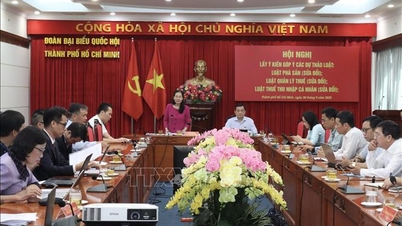

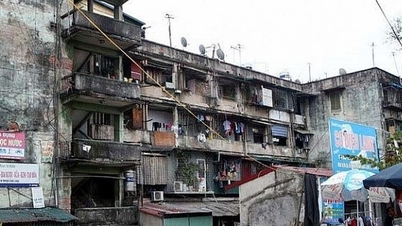






















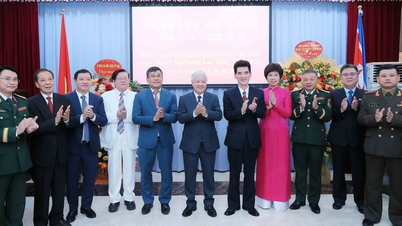















































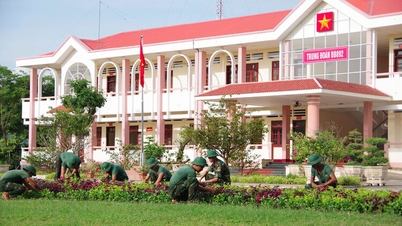
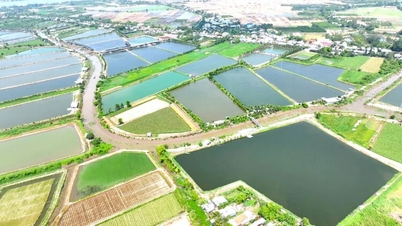
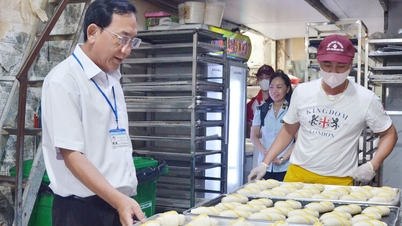















Comment (0)